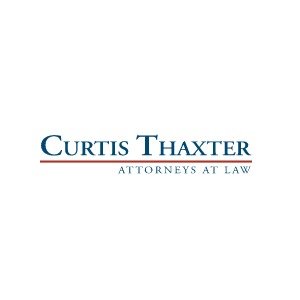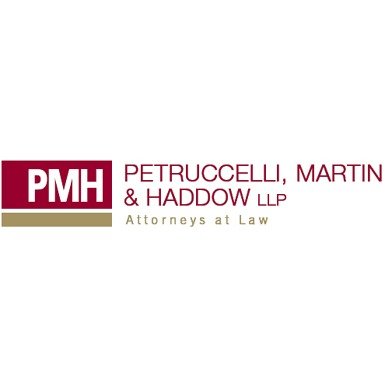Best Sustainable Finance Lawyers in Maine
Share your needs with us, get contacted by law firms.
Free. Takes 2 min.
Or refine your search by selecting a city:
List of the best lawyers in Maine, United States
About Sustainable Finance Law in Maine, United States
Sustainable finance refers to investment and lending practices that consider environmental, social, and governance (ESG) criteria in addition to standard financial measures. In Maine, sustainable finance initiatives are growing due to increased awareness of climate change, efforts to reduce carbon emissions, and a statewide push for environmental stewardship. Laws, regulations, and best practices in sustainable finance affect businesses, investors, non-profits, and public entities that aim to align financial activities with sustainability goals. This legal field encompasses green bonds, renewable energy investments, responsible banking practices, and more, encouraging financial flows that support sustainable development.
Why You May Need a Lawyer
Seeking legal guidance in sustainable finance may be beneficial in several scenarios:
- You are a business aiming to fund renewable energy projects and need help navigating state and federal incentives.
- Your organization wants to issue or invest in green bonds or other sustainable financial instruments.
- You face regulatory compliance questions about ESG disclosures or reporting requirements.
- You need advice on structuring public-private partnerships for sustainable infrastructure.
- You are responding to investor or stakeholder concerns about your ESG practices.
- You seek to understand requirements for participating in governmental or private programs promoting sustainable finance.
- You are concerned about the legal risks related to greenwashing or false sustainability claims.
Lawyers specializing in sustainable finance can help interpret complex regulations, assess risk, draft agreements, and ensure initiatives comply with applicable laws.
Local Laws Overview
In Maine, several laws and policies encourage sustainable finance, with a focus on environmental stewardship and responsible investment:
- Climate Change Legislation: Maine's Climate Action Plan sets ambitious goals for emission reductions and clean energy adoption, influencing financial priorities for public and private investment.
- Green Banking and Lending: The state supports energy efficiency and renewable energy projects through various loan funds and incentives managed by the Efficiency Maine Trust and other state bodies.
- ESG Disclosure Regulations: While much guidance comes from federal regulators, Maine encourages transparency in reporting ESG factors, especially for investors and publicly funded projects.
- Bonds and Financing: Municipalities and state agencies in Maine may issue green bonds to finance sustainable infrastructure, subject to specific statutory requirements regarding proceeds and disclosures.
- Fiduciary Duties: Trustees and investment managers operating in Maine must consider state-mandated duties, which increasingly recognize the materiality of ESG risks and opportunities.
Compliance often requires navigating both state and federal rules that intersect with sustainable finance. Legal professionals can clarify which laws apply and help you make informed decisions.
Frequently Asked Questions
What is sustainable finance, and how does it apply in Maine?
Sustainable finance integrates ESG criteria into financial decisions. In Maine, it applies to public and private investments, lending for clean energy, renewable projects, and responsible corporate practices to promote local sustainability goals.
What types of financial instruments are commonly used in sustainable finance?
Common instruments include green bonds, social bonds, sustainability-linked loans, ESG mutual funds, and climate-focused investment vehicles. These support projects that aim to generate positive environmental or social outcomes.
Are there any legal requirements for ESG disclosure in Maine?
Maine encourages transparency for ESG matters, especially in public investments. While not all private entities are required to disclose ESG data, many do so voluntarily or to meet investor demand. Some federal rules may also apply.
What incentives exist in Maine for pursuing sustainable finance initiatives?
The state offers various incentives, such as grants, loans, and tax credits for energy efficiency, renewable projects, and sustainable business practices. Agencies like Efficiency Maine provide financial support and guidance.
Can businesses in Maine be penalized for false sustainability claims or greenwashing?
Yes, making misleading or unsupported sustainability claims can violate state consumer protection laws and result in legal or financial penalties. Accurate documentation and honest communication are essential.
How does Maine's climate policy affect local financial institutions?
Maine’s climate policies encourage financial institutions to fund clean energy and climate adaptation projects. Some funding programs require adherence to sustainability standards and reporting mechanisms.
What role do lawyers play in sustainable finance transactions?
Lawyers draft agreements, ensure regulatory compliance, conduct due diligence on projects, and verify ESG claims. They help structure deals to maximize benefits and minimize legal risks.
Is it possible for individuals to participate in sustainable finance in Maine?
Yes, individuals can invest in ESG-focused funds, purchase municipal green bonds, and work with financial advisors on sustainable portfolios with options tailored for Maine residents.
Are there special considerations for non-profits seeking sustainable finance in Maine?
Non-profits may be eligible for grants, low-interest loans, or favorable financing for sustainable projects, but must comply with both state nonprofit and sustainability regulations.
What happens if a sustainable finance project fails to meet promised environmental goals?
Failure to deliver on promised outcomes can trigger legal consequences, such as contract breaches, loss of funding, or regulatory penalties. Legal advice can help establish clear terms and mitigation strategies.
Additional Resources
If you need more information on sustainable finance in Maine, consider the following resources:
- Efficiency Maine Trust - Provides information on funding and incentive programs for energy efficiency.
- Maine Department of Environmental Protection - Offers guidance on state environmental regulations affecting finance.
- Maine Public Utilities Commission - Regulates aspects of financing for clean energy projects.
- The Maine Climate Council - Publishes the state’s climate action strategies, relevant to sustainable finance.
- Local Bar Associations - Can help connect you with attorneys specializing in sustainable finance.
Next Steps
If you are seeking legal assistance related to sustainable finance in Maine, start by gathering details about your objectives and any relevant documents. Identify whether your questions involve investments, compliance, reporting, or sustainable project structuring. Reach out to an attorney with experience in sustainable finance, environmental law, or financial regulation. Consider scheduling an initial consultation to discuss your needs and learn about potential strategies. Active engagement with local resources and qualified professionals will help ensure your sustainable finance activities meet legal standards and support Maine’s sustainability goals.
Lawzana helps you find the best lawyers and law firms in Maine through a curated and pre-screened list of qualified legal professionals. Our platform offers rankings and detailed profiles of attorneys and law firms, allowing you to compare based on practice areas, including Sustainable Finance, experience, and client feedback.
Each profile includes a description of the firm's areas of practice, client reviews, team members and partners, year of establishment, spoken languages, office locations, contact information, social media presence, and any published articles or resources. Most firms on our platform speak English and are experienced in both local and international legal matters.
Get a quote from top-rated law firms in Maine, United States — quickly, securely, and without unnecessary hassle.
Disclaimer:
The information provided on this page is for general informational purposes only and does not constitute legal advice. While we strive to ensure the accuracy and relevance of the content, legal information may change over time, and interpretations of the law can vary. You should always consult with a qualified legal professional for advice specific to your situation.
We disclaim all liability for actions taken or not taken based on the content of this page. If you believe any information is incorrect or outdated, please contact us, and we will review and update it where appropriate.
Browse sustainable finance law firms by city in Maine
Refine your search by selecting a city.












